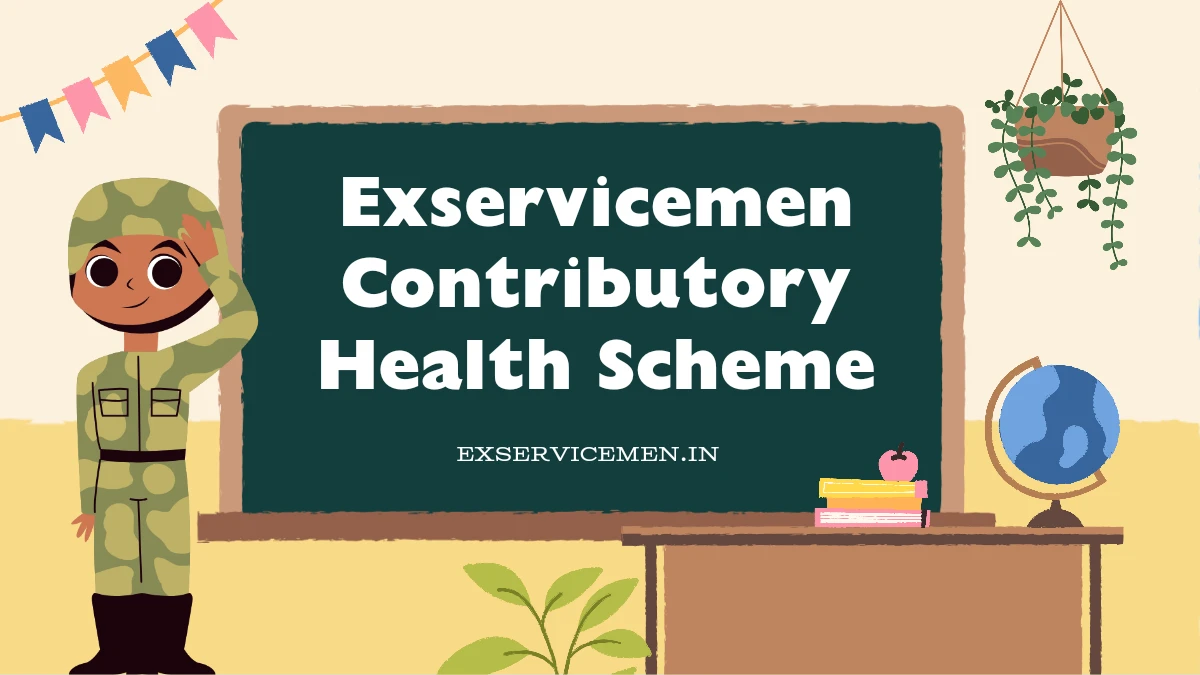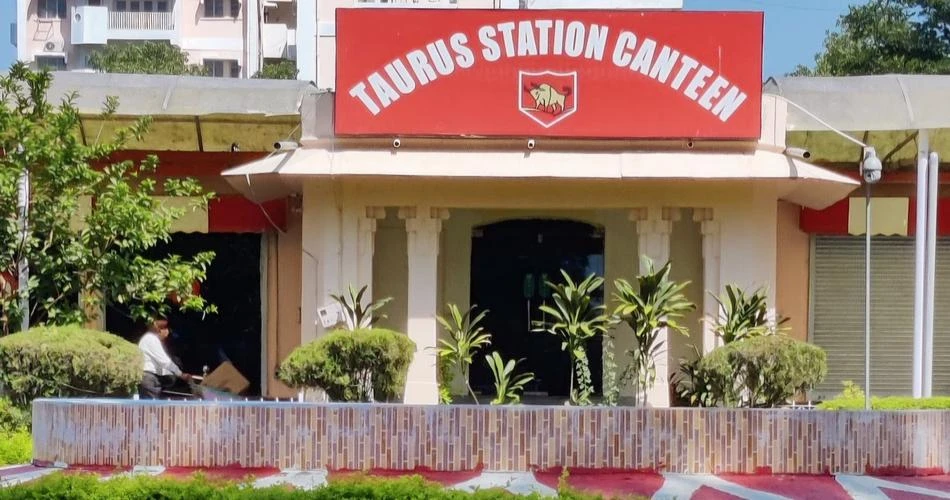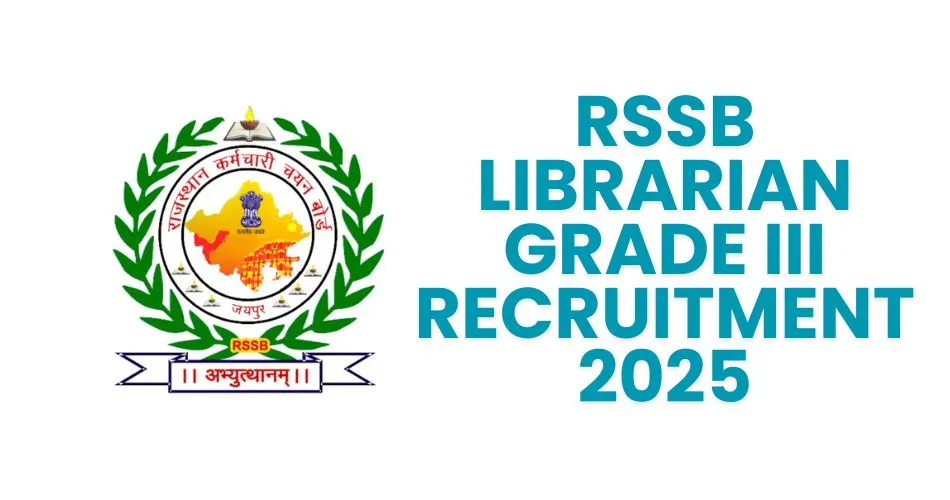The Ex-Servicemen Contributory Health Scheme (ECHS) is a pivotal healthcare initiative in India, specifically designed to provide medical care to retired armed forces personnel and their dependents. With a wide network of ECHS empanelled hospitals across the country, the scheme ensures that beneficiaries receive top-notch healthcare services. This article dives into the intricacies of ECHS, exploring its features, benefits, eligibility criteria, and frequently asked questions.
Introduction to ECHS
The Ex-Servicemen Contributory Health Scheme was established with the primary objective of providing comprehensive and quality healthcare to ex-servicemen and their families. The scheme is a significant initiative by the Indian government, reflecting its commitment to the welfare of armed forces personnel who have served the nation with honor and dedication.
ECHS operates through a vast network of empanelled hospitals across India, ensuring that beneficiaries have easy access to a wide range of medical services, including outpatient care, inpatient treatment, diagnostic tests, surgeries, and emergency care.
Importance of ECHS in India’s Healthcare System
In a country like India, where the healthcare landscape is vast and diverse, it plays a crucial role in providing dedicated healthcare services to a specific segment of the population. The scheme’s importance can be summarized as follows:
- Dedicated Healthcare for Ex-Servicemen: It ensures that those who have served the nation have access to the best available medical care.
- Nationwide Network: The scheme operates through a widespread network of empanelled hospitals, making healthcare accessible across urban and rural areas.
- Comprehensive Coverage: From minor outpatient consultations to major surgeries, the scheme covers a broad spectrum of medical services.
- Financial Security: ECHS reduces the financial burden of healthcare on retired personnel and their families by providing subsidized or free services at empanelled hospitals.
ECHS Empanelled Hospitals: A Closer Look
ECHS empanelled hospitals are the backbone of the scheme. These hospitals have been selected based on stringent criteria to ensure that beneficiaries receive the highest quality of care. The selection process includes:
- Infrastructure Assessment: Hospitals must have the necessary infrastructure to provide a wide range of medical services.
- Quality Standards: Only those hospitals that meet or exceed the prescribed quality standards are empanelled.
- Geographical Coverage: Hospitals are selected to ensure widespread coverage across different regions, including remote and rural areas.
Services Provided by ECHS Empanelled Hospitals
ECHS empanelled hospitals offer a comprehensive range of medical services, catering to the diverse healthcare needs of ex-servicemen and their families. Some of the key services include:
- Outpatient Department (OPD) Services: Beneficiaries can visit empanelled hospitals for consultations with doctors across various specialties.
- Inpatient Treatment: ECHS covers hospitalization costs for various treatments and surgeries.
- Diagnostic Services: A wide range of diagnostic tests, including blood tests, imaging studies, and more, are available at empanelled hospitals.
- Specialist Consultations: Its beneficiaries can access specialist consultations when required, with referrals from the ECHS Polyclinic.
- Emergency Services: In case of emergencies, beneficiaries can avail of immediate treatment at the nearest empanelled hospital.
- Pharmacy Services: Empanelled hospitals provide prescribed medications under the scheme.
Eligibility Criteria for ECHS
To benefit from the Ex-Servicemen Contributory Health Scheme , one must meet the following eligibility criteria:
- Retired Armed Forces Personnel: The scheme is only for retired personnel of the Indian Army, Navy, and Air Force.
- Dependents: Spouses, unmarried and widowed daughters, sons up to the age of 25 years, and dependent parents of the retired personnel are eligible.
- Pension Drawers: The retired personnel must be drawing a pension from the Armed Forces to be eligible for ECHS.
- Disability Pensioners: Individuals receiving Disability Pension are also eligible for the scheme.
- Enrollment Requirement: Eligible individuals must enroll themselves and their dependents by filling out the required forms online on the ECHS website and paying the enrollment fee.
Enrollment Process for ECHS
The enrollment process is very streamlined. Here’s a step-by-step guide:
- Visit the Official Website: Start by visiting the official website.
- Fill Out the Application Form: Complete the application form with all the relevant details of the retired personnel and dependents.
- Submit Required Documents: Submit necessary documents, including proof of identity, pension payment order, and photographs.
- Pay the Enrollment Fee: The enrollment fee can be paid online through the portal.
- Receive the ECHS Card: Once the application is processed, the card will be issued, which can be used to avail services at empaneled hospitals.
How to Locate ECHS Empaneled Hospitals
Finding an ECHS empaneled hospital near you is essential to ensure timely and convenient access to healthcare services. Here’s how you can locate these hospitals:
- Official ECHS Website: The most reliable source is the official ECHS website, where you can search for empaneled hospitals based on location.
- Get Directions: Both platforms offer a “Get Directions” feature, enabling you to locate the hospital on a map and plan your visit.
Benefits of the ECHS Scheme
The Ex-Servicemen Contributory Health Scheme offers numerous benefits to its beneficiaries, making it a vital healthcare initiative. Some of the key benefits include:
- Wide Network of Hospitals: It provides access to a vast network of empaneled hospitals across India, ensuring that beneficiaries can receive treatment wherever they are.
- Comprehensive Healthcare: From routine check-ups to specialized treatments, the scheme covers a broad range of medical services.
- Financial Assistance: The scheme significantly reduces the financial burden of healthcare, with many services provided free of cost.
- Emergency Care: Beneficiaries can avail emergency services at empaneled hospitals without prior authorization, ensuring quick and effective treatment in critical situations. Authorization formalities can be done later.
- Specialist Referrals: It facilitates access to specialist care through referrals from Polyclinics, by which a person can have a referral of his desired hospital.
Challenges and Limitations of this Scheme
While this scheme offers a plethora of benefits, there are also some challenges and limitations. Understanding these can help beneficiaries make the most of the scheme:
- Limited Availability in Remote Areas: Although the scheme has a wide network, some remote areas may have limited access to empaneled hospitals due to non availability of medical infrastructure.
- Quality of Care: The quality of care at empaneled hospitals can vary, with some beneficiaries reporting substandard services.
- Referral Process: The process of obtaining referrals for specialist care can be time-consuming and exhaustive as you have to first sought opinion of doctor at polyclinic , thereafter one can only be referred.
- Reimbursement Delays: Beneficiaries seeking reimbursement for treatment at non-empaneled hospitals may face delays and administrative hurdles.
Frequently Asked Questions (FAQs)
Q1: What is ECHS?
A: ECHS stands for Ex-Servicemen Contributory Health Scheme. It is a healthcare scheme designed to provide medical services to retired armed forces personnel and their dependents.
Q2: Who is eligible for the ECHS scheme?
A: The scheme is open to retired armed forces personnel, including those from the Army, Navy, and Air Force, as well as their dependents, such as spouses, unmarried daughters, and dependent parents.
Q3: How can I enroll in the ECHS scheme?
A: Eligible individuals can enroll by filling out the required forms online on the ECHS website, submitting the necessary documents, and paying the enrollment fee. After processing, an ECHS card will be issued.
Q4: What services are covered under this scheme?
A: It covers a wide range of medical services, including outpatient consultations, inpatient treatment, diagnostic tests, surgeries, and emergency critical care.
Q5: Can I choose any hospital for availing ECHS services?
A: No, ECHS beneficiaries can only avail services at empanelled hospitals that have been selected based on quality and infrastructure standards.
Q6: Are there any restrictions on the number of times I can use the services?
A: There are no restrictions on the number of times a beneficiary can use ECHS services, but the services are subject to the scheme’s prescribed rules and regulations.
Q7: How can I locate ECHS empanelled hospitals near me?
A: You can locate ECHS empanelled hospitals by visiting the official website or using platforms like Fouji Adda, which provide detailed information on hospitals in your area.
Q8: Can I get reimbursement for treatment taken at non-empanelled hospitals?
A: Yes, beneficiaries can seek reimbursement for treatment at non-empanelled hospitals incase of emergency. However, reimbursement is subject to polyclinic approval and adherence to the scheme’s terms and conditions.
Q9: What should I do in case of an emergency?
A: In an emergency, visit the nearest empanelled hospital for immediate treatment. Inform the ECHS Parent Polyclinic within 24 hours to ensure proper documentation and continuity of care.
Q10: What are the challenges associated with the ECHS scheme?
A: Some of the challenges include limited availability in remote areas, variability in the quality of care, a cumbersome referral process, and potential delays in reimbursement.
Conclusion
The Ex-Servicemen Contributory Health Scheme is an essential healthcare initiative that plays a crucial role in ensuring the well-being of retired armed forces personnel and their families. With a wide network of empanelled hospitals and a comprehensive range of services, the scheme offers significant benefits, from routine medical care to emergency treatment.
However, like any large-scale initiative, this scheme has its challenges. Beneficiaries must stay informed and proactive in navigating through the system to maximize the benefits available to them. By understanding the eligibility criteria, enrollment process, and how to locate empaneled hospitals, ex-servicemen and their dependents can ensure they receive the best possible care under this vital scheme.
For more detailed information and updates, it is advisable to regularly visit the official ECHS website or contact the nearest ECHS Regional Centre.








